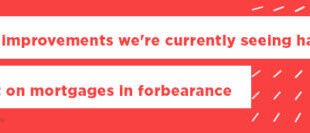
You bought a home. You pay the mortgage on time every month. And after a few years, you’ve seen the principle inch down a bit.
The news is even better if your circumstances and needs have changed. Maybe you want to pay for a wedding, take a vacation or consolidate outstanding debt. Or perhaps you need some extra money for home improvements like a bathroom or kitchen remodel. All of this might be possible with a HELOC, a home equity line of credit. But before rushing to apply, ask yourself the following seven questions.
What is home equity?
Home equity is the financial stake you have in owning your home — determined by subtracting the outstanding amount owed on the mortgage from the property’s current market value. That market value will change over time as the property’s value rises or falls along with neighboring properties and market conditions.
If you purchased your home with a down payment, you immediately have some equity. Then, a portion of each subsequent mortgage payment goes towards bringing down the outstanding principal. The same can be said of a lump-sum payment made to reduce the principal even further.
Based on your credit score, repayment history and the total amount you’ve invested in your home so far, you may be able to leverage your home equity with a HELOC.
What is a HELOC?
HELOC is an acronym that stands for home equity line of credit. It’s similar to a credit card in that it gives you access to a predetermined, revolving credit line to pay for the things you want or need. Unlike lump-sum loans, a HELOC uses your home as collateral, so the lender has less risk. And you have access to cash at a lower interest rate than other methods of borrowing. You simply withdraw funds when needed and pay them back as you can. The sooner you pay it back, the less interest you’ll pay — just like paying your credit card in full every month.
Do I even have equity in my home?
While a lender may have a strict formula on how much equity they will recognize, you can get a pretty good ballpark estimate with this simple calculation.
- Estimate your home’s current market value by using an online home price estimator like Zillow’s Zestimate.
- Check your most recent mortgage bill to see what you still owe on your home.
- Subtract #2 from #1 to get a rough idea of your home equity.
So, if your home is worth $ 250,000 in today’s market, and you still owe $ 200,000 on your mortgage, you have $ 50,000 in home equity.
FYI: You’ll most likely be required to own a minimum of 20% of your home to take out a HELOC, so be sure that your mortgage balance is 80% – or lower – than the original loan amount before applying.
What do I need when applying for a HELOC?
Applying for a HELOC is similar to applying for a traditional mortgage. In fact, your lender will ask you to pull together some of the same information to be evaluated, including:
- personal information (like legal name, phone number, email address and social security number)
- proof of residence in the home of at least two years (if you’re serious about a Heloc, you’ve probably been there longer)
- income and employment history, including recent pay stubs and W2 forms
- most recent bank statements and documentation from investment accounts
- mortgage documents on the property in question
What will my HELOC interest rate be?
HELOCs typically have lower interest rates than most personal loans, refinances and second mortgages. Keep your eyes opened though; the program you’re offered may have variable rates, meaning the rate might go up and down based on market factors outside of your control. This can make borrowers a little nervous, so many lenders will cap rate increases so that the interest can climb only so high.
To offer a little peace-of-mind, other providers give the option of fixed interest rates and allow you to lock in at a lower rate, if available. Be sure to ask about rates when applying. Also, interest paid on HELOCs may be tax-deductible in your state, so check with your tax preparer to see if there’s an opportunity to save at tax time.
Are there upfront fees with a HELOC?
Before applying, you’ll want to be crystal clear on fees and closing costs. While having a HELOC is convenient if you plan to borrow small amounts here and there, you’ll want to weigh the benefits of having access to these funds against the costs of setting up the program in the first place. Like other home loans, fees can include charges for application processing, appraisal, title research and other incidentals. But they can usually either be paid in cash at closing or rolled into your HELOC balance. Note that if you add closing costs into the HELOC amount, you’ll have to start making payments in the next billing cycle, even if you don’t draw against the credit line.
How much can I borrow?
A home equity line of credit program lets you borrow money against your home’s value. The amount you can borrow will depend on several factors, including your credit history, your home’s appraised value and the remaining balance on your existing mortgage.
You can withdraw as much or as little as you need, up to your credit limit. Monthly payments will vary depending on the interest and the amount withdrawn, so you have some control over the impact it’ll have on your budget.
Still, don’t forget that tapping into a HELOC is like taking on more debt. When you accept a credit card offer at a favorite store, it may feel like a good idea at the time, but you have to ask yourself, “did I really need another credit card?” With a HELOC, you should ask yourself the same thing. Sure, it allows you to withdraw cash on an as-needed basis, but remember to be smart about it. If you miss a payment, your credit score — and possibly your home itself — could be at risk.
Home equity can get confusing, especially now
Some financial institutions may be nervous about lending to homeowners because of uncertainty about the current job market and the pandemic. You might find stricter standards, like higher credit score requirements, for a home equity line of credit. Some banks may have temporarily stopped offering HELOCs altogether.
With that said, if you think a HELOC program may be right for you, we’re standing by and ready to answer any questions you might have. Why not reach out to one of our experienced loan officers near you to discuss your options.



